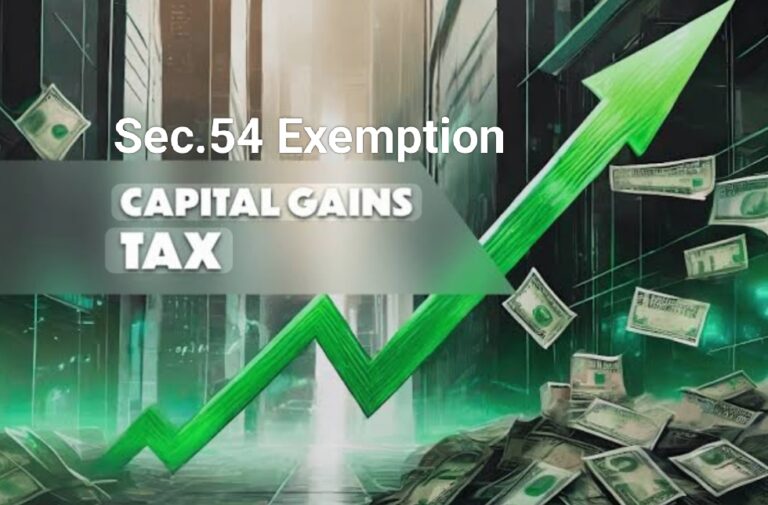Understanding capital gain taxation is crucial for every investor, property owner, and taxpayer in India. Capital gains arise when you sell a capital asset such as property, stocks, mutual funds, or gold, and the sale proceeds exceed the original purchase price. The taxation of such gains has a direct impact on your overall tax liability and financial planning.
Here are the Conditions to avail Exemption of Capital Gain Tax under Section 54 of the Income Tax Act, 1961 in India:
1. Eligible Assessee
-
Only Individuals or Hindu Undivided Families (HUFs) can claim this exemption.
-
Companies, firms, and other entities are not eligible.
2. Nature of Capital Asset Sold
-
The exemption is available on long-term capital gains arising from the transfer of a residential house property (a building or part thereof).
-
The asset sold must be a long-term capital asset, i.e., held for more than 24 months prior to transfer.
3. Purchase or Construction of New Residential Property
The assessee should either:
✅ Purchase a residential house:
- Within 1 year before the date of transfer, or
- Within 2 years after the date of transfer.
OR
✅ Construct a residential house:
- Within 3 years from the date of transfer.
4. Location of New Property
- The new residential property should be situated in India.
- Exemption is not available if the new house is purchased or constructed outside India.
5. Amount of Exemption
- The exemption is lower of:
- The amount of capital gain, or
- The amount invested in the purchase or construction of the new residential house.
6. Lock-in Period (Restriction on Sale of New House)
- The new house property should not be sold within 3 years from the date of its purchase or construction.
- If sold within 3 years, the exemption granted earlier will be withdrawn, and the amount will be taxable as capital gain in the year of sale.
7. Capital Gains Account Scheme (CGAS)
-
If the amount of capital gain is not utilized fully for the purchase or construction of the new house before the due date for filing ITR under Section 139(1):
-
The unutilized amount must be deposited in a Capital Gains Account Scheme (CGAS) in a notified bank.
- The amount should then be utilized within the specified time limits.
-
8. Exemption for More Than One Residential Property (Amendment from AY 2020-21)
- If the capital gain does not exceed ₹2 crore, the exemption can be claimed for investment in two residential houses.
- This benefit can be availed only once in a lifetime.
9. Other Important Points
- If the assessee constructs a house and claims exemption, merely purchasing land is not sufficient — construction must be completed within 3 years.
-
The exemption is available even if the new property is under construction but completed within the stipulated period.
Summary Table
| Condition | Requirement |
|---|---|
| Eligible Assessee | Individual or HUF |
| Type of Asset Sold | Long-term residential house property |
| Purchase of New Property | 1 year before or 2 years after sale |
| Construction of New Property | Within 3 years after sale |
| Location of New Property | Must be in India |
| Sale Restriction (Lock-in Period) | Cannot sell new house within 3 years |
| CGAS Deposit (if applicable) | Before due date of filing ITR |
| 2 House Exemption (up to ₹2 crore) | Allowed once in lifetime |
